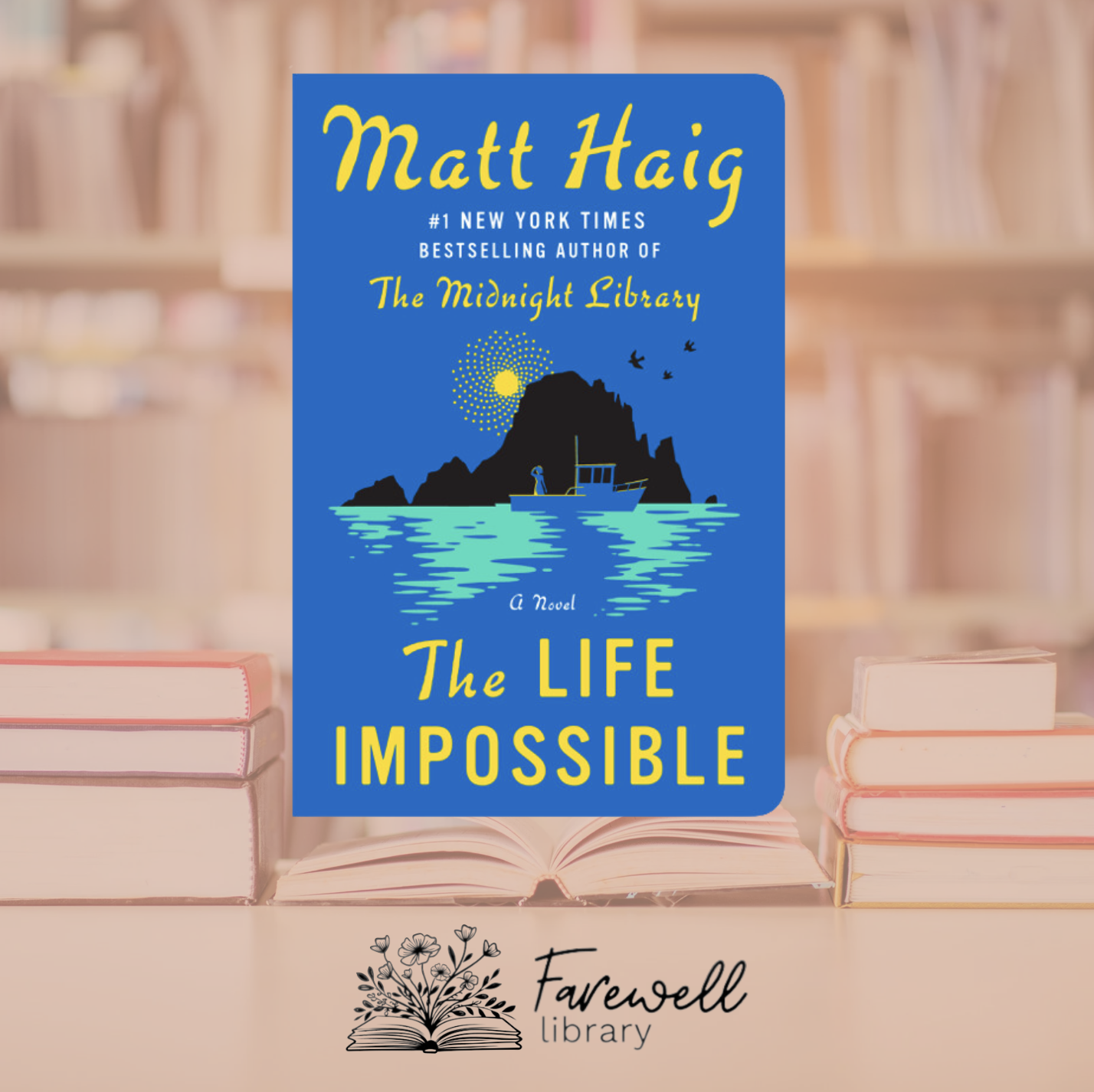The Life Impossible by Matt Haig
When retired math teacher Grace Winters mysteriously inherits a Mediterranean home from her long-lost friend, can she break free from her buried grief to come alive to the magic of life’s impossibilities? On the island of Ibiza, at the pen of novelist Matt Haig, and in the company of deeply weird and entirely lovable eccentrics, she does exactly that.
Written by Jade Adgate
“Someone once told me the way to die happy is to die complete. To live like you eat a delicious meal. To devour and enjoy every course so that when you have finished you are full, and enjoyed every mouthful, but aren’t too sad there is no more.”
There are few books as beloved as Matt Haig’s fan favorites, The Midnight Library and How to Stop Time, and it was with these in mind that I first began his newest novel, The Life Impossible. Though this book has the hallmarks we’ve come to expect from one of our most beloved modern writers, this work lands differently for me. I’ve added it to my recommendations here because it so astutely captures grief in all its messy nuance, tackles some of the hardest issues facing modern humans (climate change, mental health, death) and sparks hope leaving the reader feeling fulfilled at the end of a wild ride. But in many ways this book also misses the mark for me.
Graphic found at Amazon.com
Let’s begin with where this novel truly shines. Our main character, Grace Winters, is a sensible, weather-worn maths teacher who has been living the same routined life in the home she shared with her long deceased husband and beloved son, who died as a child. Grace is undoubtedly tethered to the shambles of a lackluster life by grief, guilt, and a sort of bored commitment to doing what has always been done. The monotony of Grace’s life is all-too believable and familiar as it perfectly relays the hum-drum bleakness that settled-in grief can bestow upon the griever. “That’s the thing with grief.” Grace tells the reader, “The way it kind of sinks you into death as well. I mean, you are still biologically functioning obviously. You are out there breathing and seeing and talking but you aren’t properly alive any more.” When an unexpected inheritance arrives from a long-forgotten friend, of her Mediterranean home on the island of Ibiza, we’re as ready for Grace to defy the shackles of her defeated existence as she is.
Photo of Ibiza at Spain.com
The things this book does well really shine. In particular, the bald portrayal of grief and guilt and how to two intermingle into something akin to shame, especially when a mother looses a child or a spouse has unshared secrets upon the death of their partner. The whirling dervish of grief that is fueled by guilt, perfectionism, and shame is sharpened to a beautiful point throughout this novel, culminating in a poignant scene between Grace and her long-dead husband. “You are not here to be perfect. None of us are. You are here to live,” he tells Grace, offering absolution across the veil. From this new understanding, sparks of her rebirth begin to light and the reader witnesses our crotchety septuagenarian reconsider what it means to live.
“Life sings and blazes. Even when we are numb to it, when we hide from it, when it is too loud and painful to experience, when we aren’t equipped to feel it – it is there, waiting, to be cherished and protected, ready to give us at least one more blast of beauty before the night.”
But as the adventure begins and magical realism unfolds “the life impossible” of this bewitching story, the reader is whipped around in a frenzied, complicated, and ultimately scattered tale that may take on one too many topics. As enchanted as I am by Grace’s rebirth, her investigation into the mystery of her friend’s disappearance, and the quirky characters and even stranger occurrences that defy the logic we assume governs our world, I lost the plot about halfway through. The topics were varied and deep (environmentalism, grief, mental health, politics, philosophy) but for me, the complexity went a bit too far and I had a difficult time discerning the way the individual pieces fit into the larger point of the book. In many ways, this book felt like a dessert my mother-in-law makes for Christmas, seven layer bars. There is too much included to really discern the flavor of each layer and overall, the effect may be overwhelmingly sweet. But I still enjoy every bite.
“Maybe that’s the truly ridiculous thing, the way we don’t even blink at the sheer improbability of our lives here on this rock spinning through space. The way we exist out of nothing, the way the whole universe exists out of nothing, and here we are, the impossible something that made existence out of the void. Impossible life. A fluke to be cherished.”



